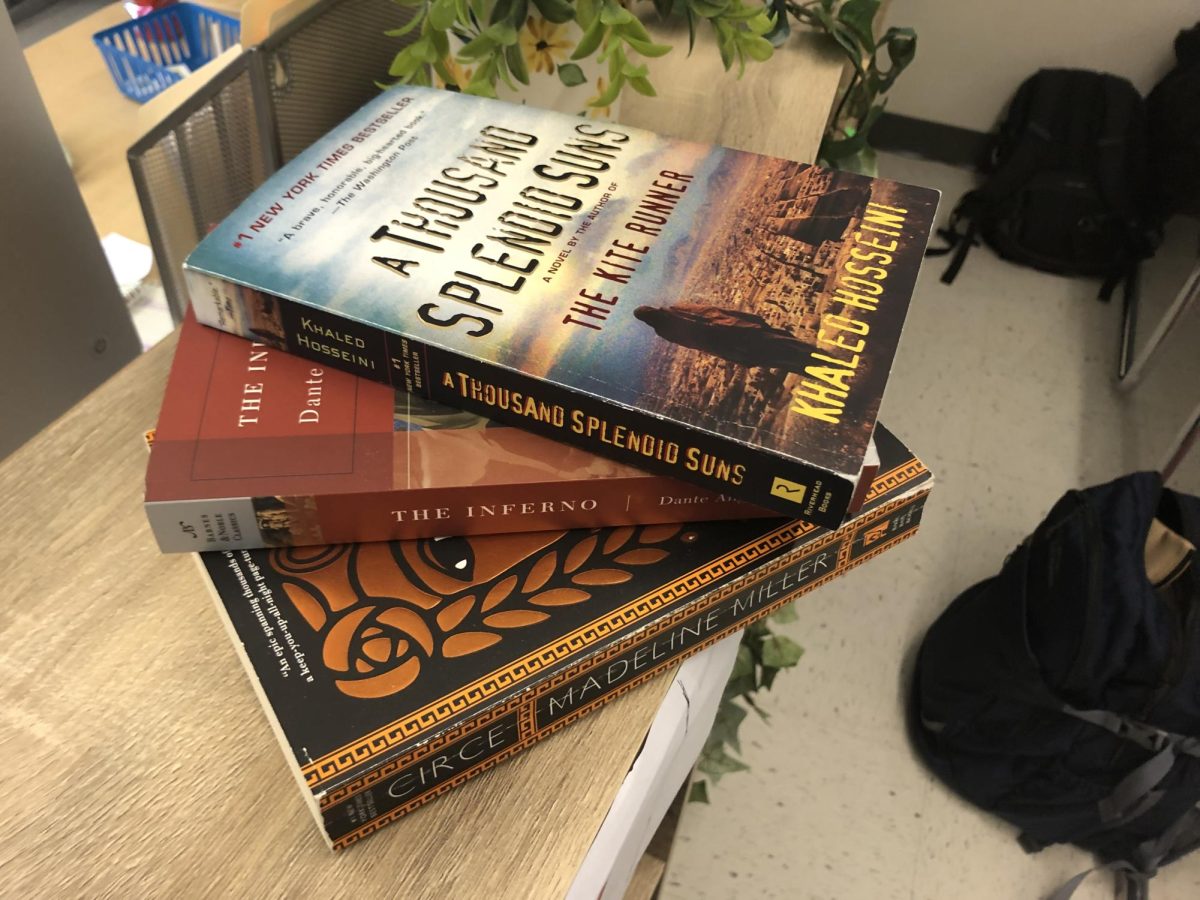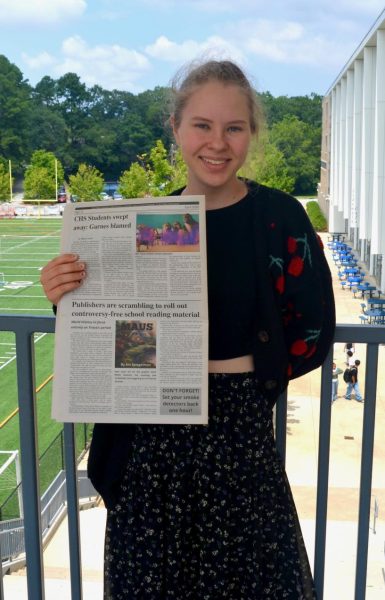Understanding literature is an important skill to have and develop. Having an understanding of how to properly read and analyze the written word is crucial to communicating with others, staying informed about the world, and generally succeeding in life. As such, this skill is emphasized in ELA classes in many different ways, but usually through assigned reading. Assigned reading tends to spark many different reactions from high school students, ranging from annoyance to joy for those who enjoy a good book, but would students enjoy reading more without it being assigned?
Student’s opinions of required reading seem to be somewhat positive, such as Geneva Schrampfer (‘27) who liked reading Circe last semester. Schrampfer believes that her opinion of Circe was not affected by the fact that it was assigned.
“I usually go into each book I read with no previous thoughts or judgments,” said Schrampfer.
Although Schrampfer believes that her opinion of the book was unaffected by the requirement, senior Theo Pappas (‘25) had a different experience on how their opinion was affected by the book being assigned.
“I honestly feel that [a book] being required reading puts [assumptions] in my head that they’re gonna be worse,” said Pappas. “I enjoyed them, but I feel like I could have enjoyed them more if I wasn’t required to read them.”
Pappas’ views are shared by many other students, as evidenced in a 2015 study titled “The Impact of Assigned Reading on Reading Pleasure in Young Adults” by Stacy Creel. This study found that students have a tendency to enjoy books less if they are required to read them than if they get to select the book themselves. Around 28% of the teenagers surveyed were allowed to pick their assigned reading books, indicating that this is a possible teaching style that could lead to increased enjoyment of reading. Although there are other teaching methods, Arrington, who is required to use required reading by higher-ups, believes that required reading is used because it is simplest.
“[I think we use required reading] because it’s easy. I truly think that that’s what it is. It’s easy and it’s what they’ve always done,” said Arrington. “ I think it all comes back to [how] you can only do so much with what’s already been decided for you. To a degree, a lot of teachers have a lot that’s already decided for them before kids even come to the classroom.”
Within limits to required reading, some teachers take issue with the book lists that they must build their curriculum around. Arrington is concerned that some of the books still on the required curriculum were released too long ago to be engaging to her students.
“I don’t necessarily think that these are the best ‘end all be all’ books,” said Arrington. “I definitely think that we could update our curriculum a lot, especially because… a lot of the stuff that’s been on the curriculum has been on the curriculum since the 70s or even the 60s. I definitely think it could use a lot of updating; [however], no one’s taking that initiative.”
Teacher Jennifer Andriano feels similar to Arrington and says that she tries to add modern books to her required reading when she can.
“I’m sure there are better ones out there, but we [the ELA teachers] try, on a yearly basis, to look for what’s new, upcoming, and might be popular with the kids and cover those.”
These efforts seem to be paying off, with students enjoying some of the more modern books they are assigned. Pappas enjoyed both of the books they read, both of which were released less than 10 years ago.
”The first book was, I’m Not Your Perfect Mexican Daughter, and then the book we’re reading now is All American Boy,” said Pappas. “We’re not far into [All American Boy] right now, but so far, it’s pretty good, and I enjoyed the one [we read] last year.”
Ell Bowers (‘26) had a more mixed experience with required reading at CHS. Bowers has read Circe, The Namesake, A Thousand Splendid Suns, and Lord of the Flies, but they only enjoyed Circe and The Namesake. Bowers thinks that Lord of the Flies specifically has a confusing premise and that they didn’t get much out of reading it.
”I’m not really sure what the message was supposed to be [for Lord of the Flies],” said Bowers. “[Maybe] don’t go crazy on an island? The whole premise of the book just felt really weird and unrealistic, and I don’t really understand how it’s supposed to be a classic novel. I just didn’t really feel like we took away anything from it.”
Since Lord of the Flies was released in 1954, almost 50 years before any of Bowers’ other required reading books were published, this may explain why it was hard for a modern student to understand and enjoy.
Regardless of CHS students’ feelings on the matter, Arrington believes required reading is here to stay, but does have an idea to make it better.
”You’re gonna have to do required reading no matter what, in English,” said Arrington. ”But I do think that we could make it easier on ourselves if somebody would update the curriculum to things that have been released more recently. I think we wouldn’t have to fight [as much]. I think kids would just want to read.”









Rugley "Hot-Lips" Jackson • Feb 12, 2025 at 3:54 pm
I’m sure I would be able to appreciate this article more if I were literate. Currently, I enjoy staring at the layout.